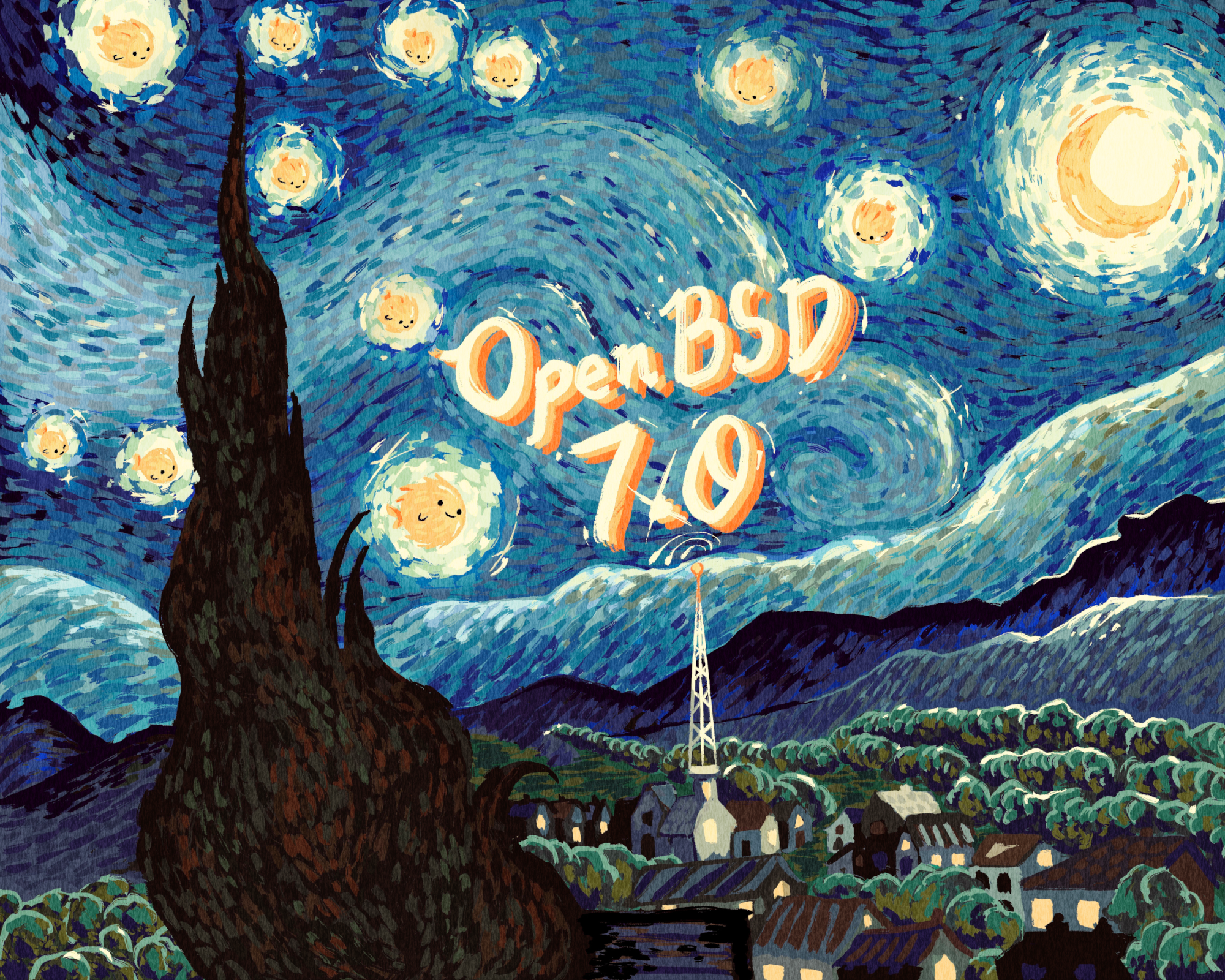SMB is weird, do you have the option to run NFS on the share instead? Since NFS is made for Unix systems, it’s what I’ve always gone for.
Justa person in a weird weird world
Speaks: se,en,fr
Queer asf, vegan, GNU fangirl, libertarian socialist
- 2 Posts
- 42 Comments
Studied languages at a university in Sweden, using only libre programs, except for one group assignment where we used Google docs. Nothing terribly interesting (computer-wise). Everything worked. Professors wanted .docx files, which LibreOffice happily exported. If I was so inclined, nothing would’ve stopped me from using something like OpenBSD, or hell, even Haiku would probably work.
SDDM is still X11 based, no matter which desktop you run with it. I have tried enabling Wayland on it, but it’s been… Unstable to say the least.

 3·5 months ago
3·5 months agoSpotify is CEF, I think, and it works pretty well.
No OS is perfect, as you likely do have to use a proprietary modem and some proprietary apps, but CalyxOS works well for me on my Fairphone 4. I like the base install being as free as realistically possible on a modern Android phone, especially replacing Google apps with microG. Just don’t enable SafetyNet if you don’t want it to run (sandboxed) Google blobs. That API is deprecated anyways.
The experience is smooth, free and I get a repairable phone without having generative “”“AI”“” shoved down my throat. A win on all fronts in my opinion.
Also, SafetyNet is deprecated, and Google has said that app developers shouldn’t use it for a long time before that, so I’ve never had to use it. My experience of a blob-free microG has been really good, and I trust FOSS code a hell of a lot more than sandboxed proprietary code, because I can’t be sure what it does with the data I inevitably do provide it.
MicroG has also been very clear IMO about SafetyNet not being a reimplementation, but rather a sandbox when it was relevant.
Swaylock?
I like Sway, it obviously needs a bit of configuration to be useful, but that’s partly what I like about it, and using a distro like Guix (Nix configured with Lisp) makes it easy to have the same settings on multiple PCs. Otherwise I like GNOME; it’s well supported and has many good apps. Touch/touchpad support is really good as well.

 1·6 months ago
1·6 months agoI agree with the other commenter recommending to migrate as soon as possible while the kernel still does support, but that does seem like a workable strategy if you can’t for the foreseeable future.

 1·6 months ago
1·6 months agoUse an old kernel version (if yours doesn’t still support it) and something like btrfs-convert to get a maintained filesystem instead. Works pretty well in my experience with converting other filesystems to btrfs.
OpenGamepadUI works well as a FOSS alternative to Steam if you’d like that as well.
I think this is why it’s helpful to think of it, not as a ‘why’, but as a ‘how’. There are tons of things about our bodies that do not make sense, but which hasn’t killed us enough to not spread. These can still have an effect on us, and that’s what’s interesting to me.
Trying to get a reason out of evolution can be useful sometimes, when we actually want to know what lead to a trait becoming common, but for most things, especially concerning humans, the ‘how’ is so much more interesting, because we can actually get concrete answers to that.
I second rusticl, but I’d like to note that it uses Gallium internally, and not Vulkan. There is a vulkan-gallium translation layer called Zink, though, which can be used to run rusticl on any Vulkan-capable GPU AFAIK. Zink is initially made to run OpenGL on Vulkan, but it’s also just a general-purpose Gallium driver.
Have you looked at Guix? I love it because it uses Scheme instead of Nix as its language, but I realize not everyone likes Lisp as much as I do. Also, I found the documentation easier to follow. Since it is a GNU project, you will need to install a third party channel (repo) if you need proprietary drivers/firmware. If you do, check out SystemCrafters’ install image, which has firmware on the image so you can at least boot it.

 1·6 months ago
1·6 months agoAlso, it’s the GNU version of the ‘S’ language (kind of like Octave vis-à-vis MATLAB). They only say they’re largely compatible, as they ofc don’t own S/MATLAB, but it’s pretty much the same AFAIK, only that R is now much more popular than S.
I think so. The language (Scheme) is a lot more logical to me, and the higher focus on reproducibility in the main channel compared to Nix (Guix can be bootstrapped from a tiny binary seed) is a draw for me.
*under capitalism and other non-democratic economic systems

 1·7 months ago
1·7 months agoOnly if it’s shitty proprietary drivers. Never had AMD/Intel drivers break on me.

 2·7 months ago
2·7 months agoPPA:s are specifically hosted by Canonical, no? Otherwise it’s just a normal repo.



OMG Lisp alien!